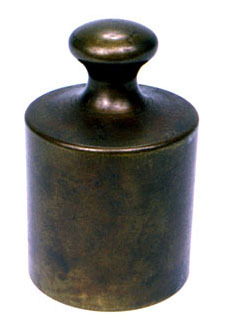If Not for a Boatload of Pirates
It’s been a long, cold week or so in my corner of the world as temperatures plunged to the kind of face-freezing levels that cause businesses to delay opening, schools to cancel classes, and mamas of stir-crazy little ones to go just a little bit crazy themselves. I have one teenager at home and no little ones anymore, but I do remember such days, and I understand your pain.
Yesterday we finally warmed up, our precipitation became much less solid, temperatures climbed all the way into the mid-40° range, and mamas rejoiced as kids went back to school. Today we’re expecting to be maybe a couple of degrees cooler than that, but still it feels downright balmy compared to 0° with a windchill of -15° and Monday’s ⅛ to ¼ inch of ice that made the 3 mile drive my son would normally make to school treacherous enough I was grateful for the cancellation.
For the non-American readers who might be into this kind of thing, I’ll translate the previous paragraph. Yesterday topped out at around 7° Celsius and today will likely be only a couple of degrees cooler, which does feel pretty refreshing after temperatures as low as -17.778° C with a windchill around -26.1111° C and anywhere from 3.175 to 6.35 mm of ice, enough to make even a 4.82803 kilometer drive pretty dicey.
 Image by newsong from Pixabay
Image by newsong from PixabayPersonally, I don’t think going metric is an improvement, but I suppose it all depends on what your brain is used to, and I recently learned that had it not been for a boatload of pirates, we might all be speaking the same measurement language.
That’s because in 1793, then US Secretary of State Thomas Jefferson was looking for a solution to the problem of inconsistent measurement systems in use throughout the new nation that made doing business both at home and abroad a little bit of a confusing hot mess. As a man who was interested in most things French following a successful revolution in which France had been a crucial ally, Jefferson was most intrigued by their newfangled base-ten measuring system.
In hopes of learning more and implementing such a logical and useful set of measurements in the US, Jefferson eagerly awaited the arrival of Joseph Dombey, a French physician and botanist who had been tasked by the National Assembly to bring its American friends a meter long copper bar and a copper grave (soon renamed the kilogram).
 To be fair, if a bunch of pirates sent this to me, I probably wouldn’t know what to do with it either. Public domain, via Wikimedia Commons
To be fair, if a bunch of pirates sent this to me, I probably wouldn’t know what to do with it either. Public domain, via Wikimedia CommonsThe weather did not cooperate with Dombey’s planned journey and his ship was forced south into the Caribbean where pirates attacked and took the scientist hostage. He died in captivity, but his luggage, marked for the US Secretary of State survived. Much delayed, it was eventually delivered into the hands of Jefferson’s replacement Edmund Jennings Randolph who had no idea what to do with it.
Without a proper introduction to the metric system, the US ended up adopting a standardized reformed British Imperial system of weights and measures in 1824 and all subsequent attempts to move entirely to the metric system, which yes, we do realize makes a lot more sense, have been unsuccessful.
We do scientific research, medical treatment, international business, and soda bottle purchasing in metric, but there’s a 100 yard football field at the high school several miles from my home and as long as the temperature stays above freezing, which happens at 32°, and we don’t get two feet of snow or a quarter inch of ice on the roads, my son will use much less than a gallon of gasoline to drive an approximately 2,700 lbs. car to get there. Because that’s how his brain works, too.
And because of pirates.



